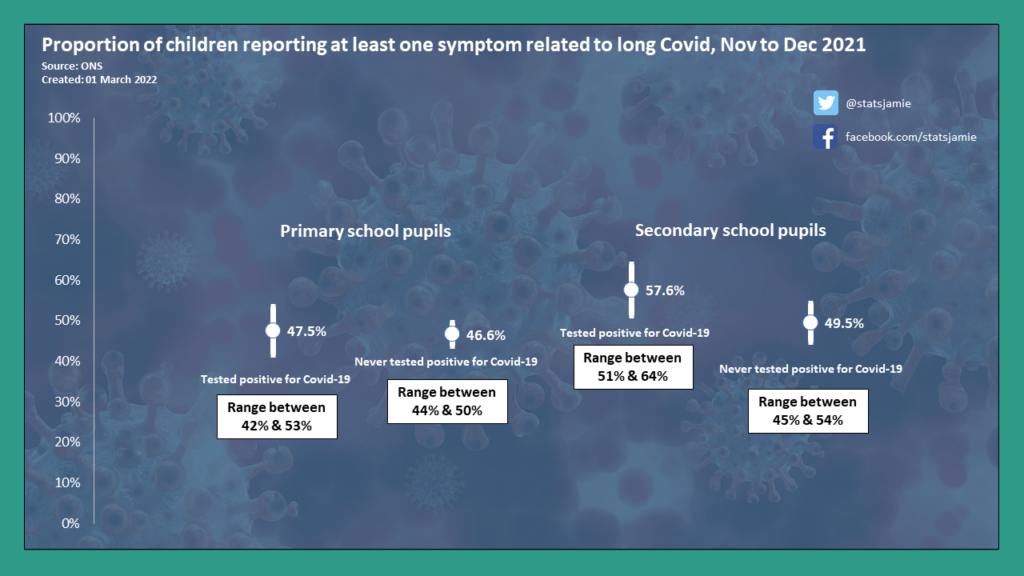Over the pandemic, the impact of Covid-19 on children has been a contentious subject, with medics called out for misleading the public on the impact of the virus. Many commentators have exaggerated the impact of long Covid and new data from the Office for National Statistics (ONS) shows the percentage of primary and secondary school children reporting symptoms related to long Covid was no different in those who had tested positive and those who had not. Long Covid is also rare in young children, with just 1% of primary school children meeting its definition.
What is long Covid?
Long Covid is where the virus causes symptoms that last weeks or months after the infection has gone. The NHS lists a variety of symptoms, but many are also present in people suffering from other health issues, such as a mental disorder. Therefore, many children will suffer from symptoms related to long Covid even if they have never had the virus, which means estimates of long Covid could be inaccurate.
To assist the Office for National Statistics has conducted a survey of school children, asking about the prevalence of symptoms associated with long Covid for those who had the virus and those who had never tested positive.
No difference in reported symptoms of long Covid regardless of if child had tested positive or not
Parents responded on behalf of primary school children and among those who had tested positive for Covid-19 since March 2020, between 42% and 53% had at least one recurring symptom for 12 weeks or more. For those who had never had a positive test, between 44% and 50% had at least one recurring symptom. Taking these two estimates together shows there is no significant difference in the reporting of long Covid symptoms between the two groups.
There is a similar scenario among secondary school children, with no significant difference in reported long Covid symptoms. Between 51% and 64% of secondary school children who had a positive test reported symptoms, it was between 45% and 54% for those never having a positive test

The ONS estimates that 1% of primary school-aged pupils and 2.7% of secondary school-aged pupils met the criteria for having experienced long Covid lasting at least 12 weeks. The definition is a positive test, symptoms for at least 12 weeks and they affect everyday life. But we know there are children who did not have a positive test who experience symptoms related to long Covid for a period of over 12 weeks. No doubt for some, they will affect their everyday life.
Conclusion
Serious illness and death are rare among children and this latest study casts doubt that long Covid has a significant impact compared to those who have never tested positive for the virus. A live debate is child vaccination and the JCVI recently wrote that it would take 4 million doses of a vaccine in 5 to 11-year-olds to prevent one admission to ICU. The recent Omicron wave saw a significant rise in cases among children, which did not result in more children in hospital than before the variant arrived. The more information parents have available, the more informed any decision they take is.
Follow me over on Twitter, Gettr, Instagram, or Facebook for my daily updates.

